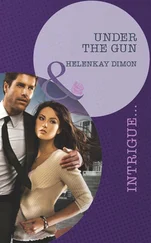It was that last gentleman who broke a silence that was in truth not so silent at all, given the crackling, popping, and crashing down of an old wooden and stone building succumbing to its fiery dismantling: “Do not repine the decision of your grandfather, fearless leader, for this has been a most excellent location for our happy little school, with ample room for the boys to run and play. If your father had bought a building in town, there should be no more romps in the meadow, and I for one could not have inculcated my young charges — under the canopy of that great, beautiful oak tree that puts us all at one with the squirrels — with all my acorns of eulogical wisdom. This has been a joyous, most splendid place of learning. Oh, hither comes the new sheriff. What’s that boy’s name?”
“Billy Boldwig,” offered Diggory with a sneer. “His father never enroled him here. He was privately tutored. And he has a stench. Have you noticed? There’s always a stench.”
The new sheriff dismounted his horse and marched up to the knot of frowning, moist-eyed fire-gazers comprised of both the pupils and the instructors and staff of the now former Chowser School for Boys (anteformerly known as the Chowser School for Wayward Boys, the “wayward” being subsequently struck when the school began to invite in other boys not so wayward to ingurgitate “the finest affordable education afforded anywhere to a Dingley lad”).
“Thank you for coming so quickly, Sheriff,” said Chowser, reaching to take Boldwig’s hand.
Not seeing the hand, Billy didn’t take it. His eyes were fixed on the fire. “I came quickly, but I cannot tarry here. There is a crime spree in Milltown. What happened here? Who did this?”
“A crime spree? What do you mean?”
“Unrest. We will quell it. Who put this old building to flame?”
“We don’t know the identity of the arsonists,” said Chowser. “Will you make it your duty to find them and bring them to justice?”
“And how are you so certain that it was arson? There could be any number of possible causes for a fire such as this. Perhaps it grew from a kitchen fire insufficiently snuffed out.”
“I am always meticulous in how I put out my fires,” said Maggy, taking offence at the Sheriff ’s suggestion. “Moreover, I—”
“I will say it, Maggy,” interrupted Chowser. Then to the sheriff: “We know that it was arson because my cook saw two men approach the school on foot carrying torches.”
“And this could not possibly be a deception on her part, to cover the fact that she went to bed having left something burning in the kitchen that should have been doused?”
Maggy’s cheeks mantled in sudden choler and rising perturbation.
“Let us say that two men did come past your school to-night carrying torches,” continued Boldwig. “Perhaps they were merely lighting their way in the dark night. Ask your cook, sir, if she saw them actually put fire to the building.”
“I am standing right here. You may ask me yourself, you malapert puppy,” said Maggy, her arms placed akimbo upon her wide hips.
“There is no cause for incivility, dear lady,” rejoined Billy Boldwig, as Chowser put a hand upon his cook’s arm to stay her wroth (knowing, of course, that it was being fed both by the sheriff ’s charge of negligence on her part and by the man’s complicity in placing the former sheriff — and Maggy’s heart’s delight — under arrest). “And let us say that everything you surmise is true — that two men did come all this way for the purpose of setting fire to this firetrap of a school; now, just how would you suppose I go about catching such persons?”
“We cannot say, but at all events you must certainly try!” beseeched Mr. Smangle. “There must be retribution for a crime of this magnitude.”
“I will do what I can when I can. There is too much else that demands my attention to make any sort of promise.”
Now Diggory stepped forward to be heard. “Explain again, sir. Whatever did you mean about there being unrest in Milltown?”
“That very thing, sir. The East Enders are become crazed Jacobins, dashing about stirring up their own Reign of Terror. The Scadgers have come in from their orchard to barricade themselves within Mrs. Lumbey’s shop on Dombey Lane. They have weapons and have already attacked one of my own deputies.”
“Then by all means go and see to your duties there,” said Chowser. “There is not much more that can be done here.” The headmaster turned to look again upon that which he could hardly abide: his life’s work disintegrating in flames, with scant hope of phlogistic phoenix rising from its ashes.
Maggy fixed her own eyes glaringly upon the sheriff. “And you have no knowledge whatsoever of who these men could be — the men who came here, and why they should come and do what they did?”
“For all I know, madam, they are part of that horde that is presently creating pandemonium in town. I cannot begin to think of who these men could be or what they should be about. And now I must go.”
“Thank you for coming, you useless lump,” hurled Maggy with sarcastic bite.
“She is upset,” apologised Chowser, quickly interposing himself between Maggy and the sheriff. “Quite upset. As are we all.”
But Maggy was not quite finished. She delivered her valedictory comment from behind Chowser’s intervening back: “Perhaps there would not be revolt in the streets if you and your men hadn’t gone merrily about arresting every man and woman in Dingley Dell who disagreed with the leadership of this valley for whatever reason served your purpose.”
“Or perhaps things might have been even worse had we failed to act,” said the freckle-faced Boy Sheriff, quickly grown into his job and standing a bit taller through pride in his office.“And Mr. Chowser, were I you, I should speak to your cook about the wages of disrespect for public officials.”
The sheriff went to his horse and undid the reins from the fence post to which they had been tethered. Then as if seised by a sudden parting thought, he turned and said to the group that included both child and adult alike, “How do you know that it wasn’t one of your delinquent boys who did it? I ask you that. Check your snot-nostriled ruffians for lucifers— that’s what I suggest. That should more than likely comprise the whole investigation, Mr. Chowser, and once you find the culprits, I should be glad to hand them over to Judge Fitz-Marshall for the speediest of trials.”
“Our boys are all good boys,” said Chowser with an ebbing desire to continue this fruitless exchange. “All fine and decent little men.”
But then to make a liar of the earnest headmaster, a rock was thrown in the direction of the sheriff. It came from a knot of especially scowling boys, each quite displeased to be called delinquents and ruffians and perhaps even arsonists. It fell slightly short of its target and struck the sheriff without injury upon the tip of his boot. Billy reached down, picked up the projectile, and displayed it upon the flat of his palm. “Who did this? Who threw the bloody rock at me?”
The boys shook their heads as one. The true assailant, young Jack Snicks, took a few steps backwards. It was hard for him to read the lips of the sheriff from such a distance, but he knew by the law officer’s dyspeptic look that he had been saying cruel things about the school, cruel things about Cook who was always especially nice to him because he was an orphan, and cruel things in general because he appeared to be contemptible by nature. Such behaviour provoked young Jack Snicks to strike a blow for his school and for all those who had been kind to him. Jack Snicks did not understand why the Sheriff should not come and shed tears of worry over what was to become of all the boys and all the men and women who took care to educate the boys and to tuck them into bed each night with tender custodianship. Jack Snicks was confused and Jack Snicks was angry and there was only one thing to do about it: smite the uncompassionating sheriff with a rock.
Читать дальше












